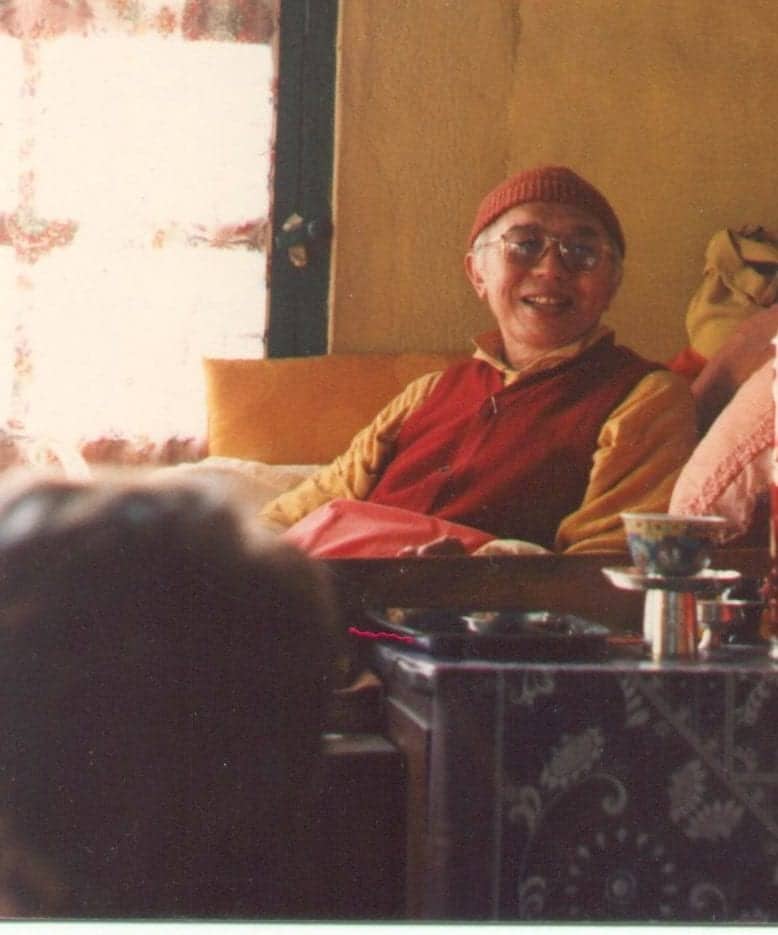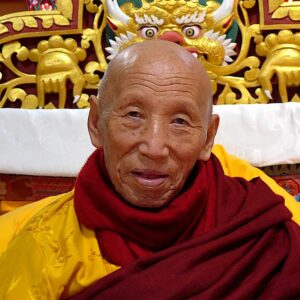Infallibility of the Guru
There seems to be a lot of talk in Buddhist blogs, magazines and in real-time lectures about what it means for a guru to be infallible, if, in fact, it’s even possible. As I mentioned at the top of this post, it partially inspired me to write this. One thing that stands out, is that what is meant by the infallibility of the guru and what most people understand this to mean are very different things.
Sometimes, Kyabjé Tulku Urgyen Rinpoche told a story about these people in Sikkim who lost faith in the Karmapa after seeing that he left something quite human and ordinary in the toilet. We have our concept of what it means to be infallible or enlightened, but aren’t concepts the very thing that keeps us from experiencing reality without distortion? At least that is what the teachings tell us. So if we go through life putting our conceptual overlay onto everything, our ideas and measurements of what is and isn’t pure, we will almost for sure re-enforce the habits that keep us bound in samsara.
Honestly speaking, we shouldn’t only regard the guru as infallible, but all beings and all phenomena. But we have to start someplace—maybe all beings and phenomena is too much at first— so we start with the love and gratitude we naturally feel for our teacher. This love, has the potential to purify our neurotic, habitual way of seeing everything, as the 3rd Karmapa quote that I mentioned earlier is telling us. We also cultivate a profound love and compassion for all beings in samsara, again, because this can purify everything. But in our tradition, we do it with the knowledge that all beings’ nature is primordially pure, and we again and again try to see them as they really are, not how they appear, distorted by our grasping and aversion. But the love or devotion to the guru is special, since the guru is the purest reflection of our own natural dharmakaya wisdom. So it stands to reason that this object for our love is very powerfully transformative. But everything is pure and infallible.
The problem is we have an idea what infallible means. And that idea is a probably a little different than what infallible really means. So let’s start by developing a little understanding of “infallible”, although I am bound by the limitations of words since direct experience is something that requires a qualified spiritual guide. Our dharmakaya nature is stainless, faultless or infallible. We can even get a glimpse of this in ordinary experience. The awareness that is the basis of mind, the knower of all experience is never harmed. When we are dull and sleepy or when we are sick or when we are elated, the quality of knowing is exactly the same. What is known changes, but the quality of knowing, stays the same. When we are dull, we know it, when we are sick, we know it. The knowing isn’t impeded by what appears in the mind. The knowing is unstained, unharmed by what is known; it is infallible. This example is to give you a sense of infallibility, but it’s just a glimpse.
Buddhist practice is about resolving duality. Normally, we think that what is experienced is separate from who experiences. But this is logically impossible. We can’t separate the experience from the experiencer. Where does experience arise? It arises in the mind. Modern science is coming around to the same place, our minds create reality (take a look at this ted talk). We don’t see the full spectrum of light. We don’t hear the same sounds that our dog can hear. Our biology limits what we can experience. And on top of that, our mind is constantly fooling us into thinking that something that doesn’t exist is solid and real. Haven’t you ever been to a movie that you loved, only to discover that your friends hated it? Or jumped out of your seat at a horror movie, even though you are perfectly safe? We are so easily tricked and the knower of the experience and what is known are falsely divided into two.
So we think the teacher is someone “out there” who comes to teach us. But the teacher only exists as a thought construct. In reality, it is our own wisdom reflecting back as dualistic experience. Right now we don’t recognize the dharmakaya essence, we can’t see the sambhohakaya nature, we don’t even see the pure nirmanakaya unity of the nature and essence, we just see a distortion of it. So the teacher appears just like a really wise human being. That’s the best we can do at this moment, because we cling to experience. We aren’t completely open. So because of our clinging, the teacher may appear to be flawed. Not because the teacher is flawed, because dualistic experience, sometimes called samsara, is always flawed. We don’t want to be like those people in Sikkim who saw Karmapa’s poop and lost all faith.
In the seven points of mind training, we are presented with a list of sublime slogans to help guide us. One of my favorites is “Drive all Blame into One.” This isn’t implying that we should be constantly blaming ourselves. It is an incredible statement of empowerment. We can take responsibility for our own perception. We can purify it, we can transcend it; how we perceive is in our hands. It means that faults and flaws are our responsibility. We have been mistaking appearance for something other than knowing; mistakenly dividing everything into perceiver and perceived.
So when the teacher appears to have flaws, we don’t have to find another teacher, we just need a sense of humor. Of course we don’t see a pure deity, such as Vajrasattva, directly, because that’s the nature of dualistic experience. Dualistic experience is flawed and everything that appears in it appears flawed. Yet, we do have to act on the basis of our flawed perception. It’s a cosmic paradox.
So what do we do? Well, we try to remind ourselves again and again that all experience is just the unfolding of the pure mandala of the deity. We try to see ourselves as the deity, the people we meet as the deity, the teacher as the deity. But most people seem to tie themselves into tautological knots, because they only focus on the purity of the teacher and forget about the purity of everything else. We think because the texts say the teacher is a buddha we better imagine the teacher as a buddha. We mentally dress the teacher up in fancy clothes and start ascribing all sorts of magical properties to everything the teacher does. But this is just a lot of thoughts. Sooner or later your teacher will do something like seemingly forget an essential detail of a practice, or accuse the wrong person of burning dinner or seem to get upset about something incredibly trivial. You won’t overcome that by thinking. Instead just remember that dualistic experience is always flawed, that everything that appears dualistically will appear flawed. That’s why we call it samsara.
It’s important to note that I am not saying that we should deny how we see the teacher, even when it seems like they made a mistake. Buddhism, and Vajrayana in particular, is about uncovering our discriminating awareness. So we do need to be aware of how we see a situation. Covering things over with “more appropriate” thinking will lead to an endless struggle. But, we also have to allow for the possibility that the way we see it is not definitive. We want the teacher to push our buttons, since those buttons bind us to samsara. At the same time, it is possible to get to a point of irreconcilable differences with the guru. Although it is really quite rare, it’s important for Dharma communities to help people who can’t go on find a gentle exit.
I have seen this again and again over the decades. People keep trying to wish away their teachers seeming flaws until one day something happens and they can’t. Instead, we can just gently accept that sometimes it will look like the teacher made a mistake. But perhaps the mistake is our countless lifetimes of misidentifying what appears in our mind. There is no teacher separate from our mind that perceives a teacher. Therefore, we need to endeavor to purify our minds. We need to profoundly accept that the infallible stainless nature of phenomena can be realized by gradually relaxing our habit of dividing every experience into perceiver and perceived.
It says it again and again in all the texts, if you purify your mind, everything appears as the lama. If you don’t, just like someone with jaundice sees a white conch as yellow, nothing will appear without faults.
The last time I saw Kyabjé Tulku Urgyen Rinpoche alive was just outside his room, on the veranda at Nagi Gompa. I spent several weeks there, sometimes going in the evening to ask Rinpoche questions and receive his teaching. I had come to his room to receive one last teaching and say goodbye. As was his custom, he placed his head on mine and then I left the room and went down the stairs. Suddenly I was overwhelmed with emotion. I ran up the stairs where I found him on the veranda. “I feel like a fool, why should I go home, Rinpoche why would I ever leave you?” I cried out. In that moment, if he had asked me to stay, I would have never got onto the plane back to Silicon Valley where an intense, sometimes thrilling, high-tech, workaholic life was waiting. He just smiled at me and said, “We’re never apart.”
Part 1 Devotion Beyond Concepts is Here
Part 2 Cultivating Devotion and Sometimes Saying No is Here










Responses